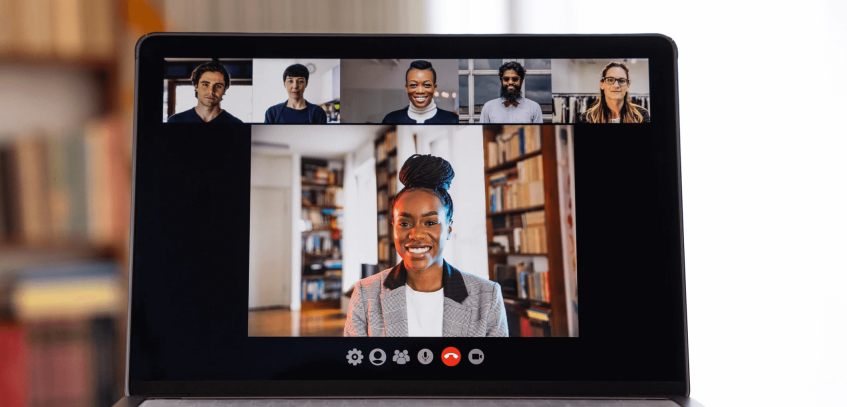In the lead-up to the African Union-European Union Summit held on 17-18 February 2022 in Brussels, Belgium, ECOSOCC in collaboration with OXFAM international held a webinar themed “Engaging civil society for an effective Africa-European Union partnership.” The webinar was held as a pre-summit event ahead of the AU-EU Summit, to address the challenges CSOs have in participating in the Africa-EU partnership.
The webinar was attended by over 180 participants including, representatives of ECOSOCC, OXFAM, departments of the African Union Commission, Regional Economic Communities, regional, national and grassroots Civil Society Organizations, networks and coalitions representing different sectors, countries and sub-regions across Africa.
The webinar was opened by ECOSOCC Deputy Presiding Officer Mr. Khalid Boudali and OXFAM International Director Pan–Africa Program and AU Liaison Office, Mr. Peter Kamalingin, with a high level panel representing various sectors of African society.
A communique, later presented to the AU, was issued at the end of the webinar.
Some of the key issues presented to relevant stakeholders included:
- The challenges faced by CSOs including lack of inclusivity and transparency and called on the AU and other relevant bodies to look towards mainstreaming CSOs at every level of policy making and implementation under the AU-EU Partnership, the implementation of already agreed protocols and proposed projects under the partnership, as well as the proposal and promotion of people-centered initiatives;
- The need to revive existing civil society engagement mechanisms in the Africa-EU partnership including the Africa Civil Society Steering Group, and called for the institutionalized participation of civil society in decision making structures of the partnership;
- Two main areas requiring immediate policy attention, specifically, immigration and climate change, noting the effect on the youth and the need to rethink and renew deepened partnerships that hold youth friendly environments at the core;
- The need to enhance domestic resource mobilization to enable a real people-centred partnership between Africa and the EU including, taking bold steps to curb illicit financial flows including, supporting the Global Tax Regulatory Framework, working together to reduce the huge public debt burden affecting Africa;
- The importance of equal representation, both in foreign and domestic policy processes, within the AU-EU partnership, ethnic groups and gender minorities; in order to diversify and demystify policies and policy making processes, especially policies that drive and address inequalities;
- The central role that youth inclusion and participation must occupy at the centre of the Africa-EU partnership;
- Expansion of the voice, role and responsibilities of the African side in the partnership in order to enable Africa to take ownership of the processes and outcomes of the partnership;
- The critical imperative to establish clear governance mechanisms within which to reset the partnership, encompassing a broad multi-actor approach, joint decision making via transparent and participatory processes, timely, accessible and available information, implementation, monitoring and accountability structures;
- The need for the AU to work with the EU to facilitate meaningful engagement and connectedness of indigenous African CSOs with EU CSOs so that together they could be seen as constructive partners in supporting the roll out of the commitments agreed to by the partners.


